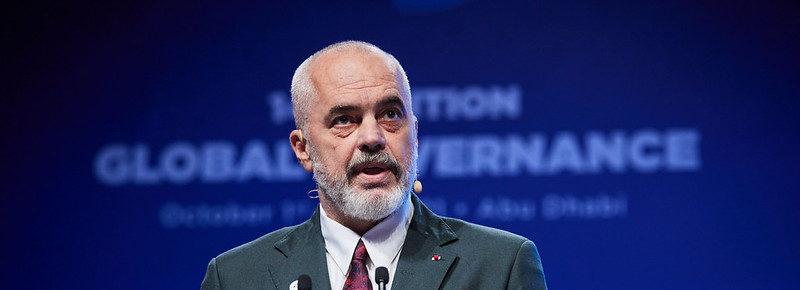The summit of European Union leaders and Balkan leaders failed to resolve a deadlock on Thursday (23 June) over a stalled EU membership application by North Macedonia, Albania and the European Union. This was despite Ukraine being officially invited to join.
Separately from the Ukraine decision on Thursday, leaders of six Balkan countries, Albania, Bosnia and Kosovo, Montenegro Montenegro North Macedonia, Serbia, and Montenegro expressed disappointment that negotiations have not begun or remain stalled after years of promising eventual EU membership.
“What has occurred is a serious blow (to the credibility) of the European Union,” Dimitar Kuvacevski, North Macedonia’s prime minister, said at a news conference after the Balkan-EU summit. He was referring to the lacklustre progress.
The EU reiterated its promise almost two decades back to the Balkans that it would grant them membership if they implemented deep economic, judicial, and political reforms.
An EU official stated that the meeting “clearly and unambiguously reiterated the European perspective on the Western Balkans” and the region’s future within the European Union.
However, the EU member Bulgaria has not lifted its veto since 2020 when it stopped accession talks with North Macedonia because of a dispute over history and language. The EU also links Albania’s progress to North Macedonia’s.
Edi Rama, the Albanian Prime Minister, said it was a “disgrace” to call Sofia’s inaction “impotent”.
Rama said that it was a shame that Bulgaria, a NATO country kidnaps two NATO countries in the middle of a war in Europe’s backyard with 26 EU countries sitting still in scary shows of impotence.” Rama was referring to Russia’s invasion of Ukraine.
Rama briefly considered skipping the summit but decided to make his point clear to leaders during a closed-door session held on Thursday. The collapse of the Bulgarian coalition government on Wednesday prevented any breakthrough in Brussels.
These EU decisions are made by the 27 member states in unanimity.
Rama stated that even a pandemic or a threatening war would not be able to unify them, referring to the disunity of EU leaders.
However, the Bulgarian Prime Minister Kiril Petrov, who represented his country despite losing confidence votes on Wednesday, stated that he hopes for support for North Macedonia within the Bulgarian parliament soon without providing more details.
The Dutch Prime Minister Mark Rutte said that there might be a solution to the issue next week. He also mentioned hopes that the parliament of Bulgaria would meet again to lift the veto against North Macedonia.
Balkan citizens long dream of joining the EU, after Yugoslavia’s disintegration in 1990s.
However, northern countries like France and the Netherlands have stopped the EU’s “enlargement”, fearing that it will repeat the 2007 rushed accession of Romanian and Bulgaria and the badly managed migration of workers from eastern Europe to Britain. This has turned many Britons against the EU.
Read the original article on the site of Eureporter .


